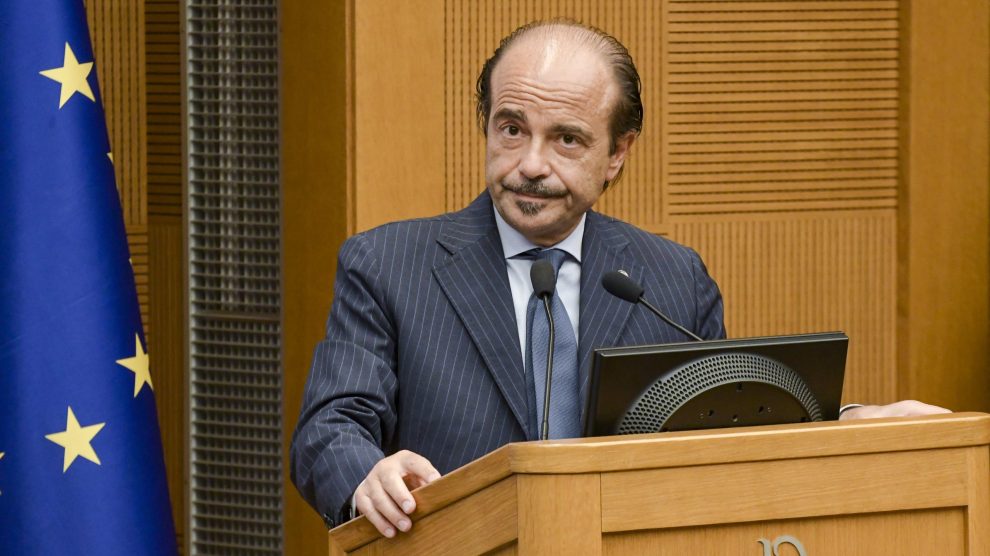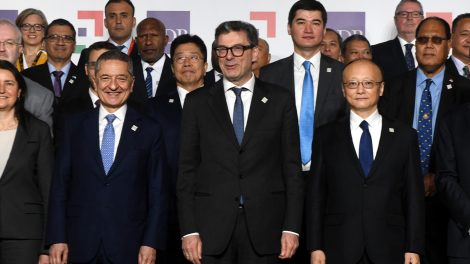“Fair share” or “network tax”? For Italy, it’s officially the latter. In early August, Undersecretary for Innovation Alessio Butti sent a letter to the European Commission in Brussels outlining Rome’s official position on a European debate that has been irking regulators on both sides of the Atlantic for the past years.
- The crux of the matter is whether online content providers should contribute to the upkeep and development of the European Union’s telecommunications infrastructure, seeing as the rise of streaming, videoconferencing, and gaming has greatly increased the volume of data running through them.
Rome’s position. In his letter, Undersecretary Butti argued that such a measure risked creating “a vicious cycle of higher prices, lower demand, less choice and less usage to the detriment of all market players and consumers.” He then asked the EU executive for further consideration of the proposal, which he deemed “premature” and in need of “reliable data” (his thoughts are unpacked further below).
- The European Commission has not commented for the time being.
- “With this move, Italy also effectively takes the lead among the countries opposed to the Commission’s proposal, and after so many years returns to an active and autonomous role in European innovation policies. In short, this is a big deal,” commented Diego Ciulli, head of Google Italia, on LinkedIn.
What telcos think. Telecom companies argue that some tech companies are occupying a considerable share of the world’s internet bandwidth, and thus should shoulder part of the economic weight of transmitting their content to our screens. ETNO, Europe’s telecoms operators lobby, said in a 2022 report that over half of the global network traffic is attributable to six US-based firms: Google, Facebook (now Meta), Netflix, Apple, Amazon and Microsoft.
- It also argues that the coming surge of traffic and the EU’s target of improving connection across the bloc (connecting 45 million Europeans to ultra-fast networks by 2030) entails all-too-costly investments for telcos to shoulder.
Political backing. This argument is supported by the EU’s Internal Markets Commissioner Thierry Breton and Competition Minister Margrethe Vestager, who are involved in the lawmaking effort and have held consultations between stakeholders over the past months. In June, the European Parliament passed a resolution supporting the so-called senders-pay principle.
- That’s not clear-cut, though, as the EP supported “a policy framework in which large traffic generators contribute fairly to the adequate financing of telecommunications networks, subject to net neutrality.”
The opposite side. On the other hand, tech companies and content providers hold that such a measure would amount to a levy on something we all consider free and open – the internet’s backbone – which would ultimately burden consumers as the higher cost of beaming data around is inevitably transferred onto them.
- Beyond damaging net neutrality by imposing a cost to the sender and becoming a de facto gatekeeper on both ends of the internet stream, argues CCIA (the EU’s main tech company lobby), the telcos themselves face a conflict of interest in bundling streaming services into their offers.
- On top of that, said tech companies are already investing heavily in infrastructure such as international undersea cables – as much as $72 billion a year collectively between 2014 and 2018, according to a report, which would be double that telcos spent in the same time span.
A deep dive into Butti’s reasoning. In his letter, the undersecretary criticises the drafted provisions because they depict online content providers as “improper traffic generators.” That’s an incorrect assumption, he stressed, as traffic “is demanded by users of telecom operators, not by the [content providers] themselves. Moreover, it is wrongly assumed that network investment costs are directly related to traffic growth. And even this is unfounded in the case of fibre networks.”
- If a “network tax” were to be triggered, he continued, “we would have free zones, such as cable TV and satellite, that would be excluded from the new network tax regime. In that case, the [tech] platforms could easily turn to satellite distribution” – which today can offer considerable bandwidths – thus “cancelling the efforts made so far to move all content to fibre, so as to make it attractive in the eyes of consumers.”
- Also, he argued, Italian telcos can already count on public resources to counter any market failures, such as in rural areas.
- “A network tax would ultimately disadvantage investment in digitisation and active operators in Europe,” wrote Mr Butti, arguing it’s best to “look deeper into the issue to make wise choices.”
What now? The Commission’s legislative proposal is expected to crop up in the fall, perhaps as early as the October EU Council, and must be finalised (or repealed) in a matter of weeks: the European Parliament’s term is coming to a close, along with the Commission’s mandate, and the election campaign after the winter holidays means that European politicians will have to pick and choose their battles.




